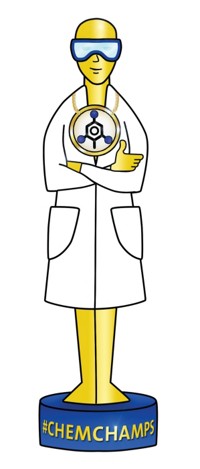Advertisement
Grab your lab coat. Let's get started
Welcome!
Welcome!
Create an account below to get 6 C&EN articles per month, receive newsletters and more - all free.
It seems this is your first time logging in online. Please enter the following information to continue.
As an ACS member you automatically get access to this site. All we need is few more details to create your reading experience.
Not you? Sign in with a different account.
Not you? Sign in with a different account.
ERROR 1
ERROR 1
ERROR 2
ERROR 2
ERROR 2
ERROR 2
ERROR 2
Password and Confirm password must match.
If you have an ACS member number, please enter it here so we can link this account to your membership. (optional)
ERROR 2
ACS values your privacy. By submitting your information, you are gaining access to C&EN and subscribing to our weekly newsletter. We use the information you provide to make your reading experience better, and we will never sell your data to third party members.
Environment
ACS Seeks Chemistry Champion
Competition Launches: Contest will reveal a master at relaying science
by Sophie L. Rovner
May 8, 2014

If you’re eager to brush up on your science communication skills and you relish some friendly competition, consider entering the American Chemical Society’s new ACS Chemistry Champions contest. Your video entry could win you a free trip to the fall 2014 ACS national meeting in San Francisco, as well as training in explaining chemistry to nonscientists. That training could pay off when you want to describe the pleasures of chemistry to a friend or even when you interview for a job.
The competition is intended to “give younger chemists the opportunity to develop and enhance their communication skills,” says Public Policy Communications Manager Darcy J. Gentleman, who is spearheading the project for ACS. Those skills “are one of the best ways to transition from a research environment to a successful career,” whether that career involves collaboration, teaching, or starting a company.
Modeled loosely on the “American Idol” singing competition series on TV, the contest will winnow the initial entrants down to a small group of semifinalists and ultimately to a single champion. The competition is open to ACS members who are undergraduate or graduate students, postdoctoral fellows, or pretenure faculty at U.S. academic institutions.
Details about the contest, including entry requirements, a release form, and tips on speaking with nonscientists, can be found at www.acs.org/chemchamps.
To enter, create a two- to three-minute video in which you describe your research as if you’re speaking with a family member who isn’t a scientist. Post it on YouTube by 3 PM EDT on June 6. After you upload your video, attract viewers by tweeting the YouTube link and including #chemchamps in your tweet. Full instructions are available on the contest website.
Also, fill out and submit your contest release form to chemchamps@acs.org. Include the YouTube URL for your video on the form. ACS will post all qualifying videos at www.youtube.com/user/AmerChemSoc.
The videos will be judged by ACS staff by the number of views they garner as well as presentation quality and scientific accuracy. Up to 10 semifinalists will be selected to advance to the second round, which will take place at the fall ACS national meeting. Semifinalists will receive free flights to and from the meeting; hotel accommodation for Friday, Saturday, and Sunday night; and $200 toward registration fees.
Semifinalists will hone and deliver their presentations during a private science communication workshop on Saturday, Aug. 9, in San Francisco. ACS staff will select up to five finalists.
The finalists will then give their revised presentations before a live public audience on the evening of Sunday, Aug. 10, in San Francisco. A judging panel will provide constructive criticism of the presentations. The winning ACS Chemistry Champion will be selected by a real-time popular vote incorporating Twitter participation.
Similar contests are run by other organizations. One is America’s Science Idol, which took place at the American Association for the Advancement of Science annual meeting in February 2013 and was cosponsored by the National Science Foundation, Discover, Popular Science, and the Point of Inquiry podcast. Another is FameLab, which was started by Cheltenham Festivals in the U.K. and has now spread worldwide with the help of other organizations including NASA.



Join the conversation
Contact the reporter
Submit a Letter to the Editor for publication
Engage with us on Twitter